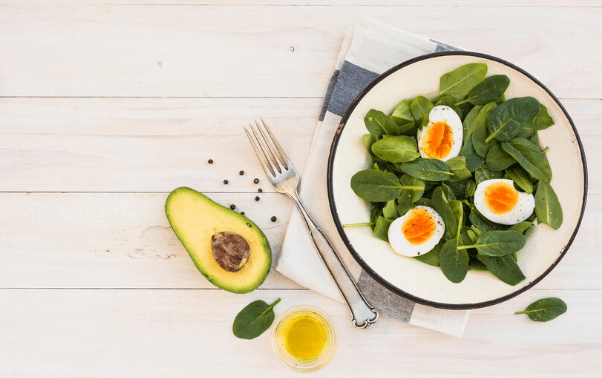Everything You Need to Know About the Low Carb Diet
The Low Carb diet has been gaining more and more followers and stands out as one of the most effective strategies for weight loss and improving metabolic health. This article provides everything you need to know about this eating approach, its benefits, risks, and how to apply it correctly in your daily life.
What is the Low Carb Diet?
The Low Carb diet is based on significantly reducing carbohydrate intake, prioritizing foods rich in protein and healthy fats. The central idea is to decrease the body’s glucose supply, forcing it to use fat as its primary energy source.
Key Features:
- Reduced carbohydrate intake: Less than 20% of daily calories.
- Focus on proteins and healthy fats: Lean meats, eggs, fish, avocado, healthy oils.
- Prioritization of low-carb vegetables: Spinach, broccoli, kale.
The diet is rooted in studies on the metabolic impact of carbohydrates and scientific evidence linking reduced carbohydrate consumption to weight loss and improvement of conditions like type 2 diabetes and metabolic syndrome.
Benefits of the Low Carb Diet
Adopting a Low Carb diet can bring various benefits, mainly related to weight loss and overall health.
What Happens in Your Body:
- Reduced insulin levels: Lower insulin levels promote body fat burning.
- Cells using fat for energy: Known as ketosis.
- Less hunger: Increased satiety due to protein and fat consumption.
- Rapid weight loss: Mainly through the elimination of water retention.
- Improved health markers: Reduction in LDL cholesterol and triglycerides.
How to Do the Low Carb Diet Correctly
Although the Low Carb diet is effective, it is essential to follow it correctly to avoid risks and achieve sustainable results.
Practical Tips:
- Set a clear goal: Weight loss, increased energy, or metabolic improvement.
- Include nutrient-rich foods: Lean proteins, vegetables, and sources of healthy fats.
- Stay hydrated: Drinking water helps avoid effects from the initial metabolic adaptation.
- Avoid extremes: Do not cut all carbohydrates at once.
What Happens in Your Body After 7 Days Without Carbohydrates?
A highly restrictive carbohydrate diet can bring significant effects:
- Ketosis: The body enters a state of intense fat burning.
- Rapid weight loss: Mainly fluids at first, then fat.
- Fatigue and dizziness: Common symptoms of initial metabolic adaptation.
- Prolonged negative effects: Risk of kidney stones and bone demineralization if extended without guidance.
Important: Zero-carb diets should not exceed seven days without professional supervision.
10 Quick Low Carb Recipes for Your Daily Routine
Incorporating Low Carb recipes into your routine can be easier than it seems. Check out some ideas:
- Scrambled eggs with avocado: Quick and nutritious.
- Almond flour pancake: Perfect for breakfast.
- Grilled chicken with broccoli: For lunch or dinner.
- Cauliflower soup: A light option.
- Meat and vegetable skewers: Practical and versatile.
- Stuffed zucchini with cheese: Easy and delicious.
- Coconut and strawberry smoothie: Sugar-free.
- Leaf salad with tuna: Ideal for a quick lunch.
- Cauliflower crust pizza: Creative and tasty.
- Zucchini chips: A crunchy snack.
How to Create a Low Carb Weekly Menu
Example Menu:
Breakfast:
- Monday: Omelet with spinach and cheese.
- Tuesday: Natural yogurt with chia seeds.
Lunch:
- Monday: Grilled salmon with broccoli.
- Tuesday: Grilled chicken with sautéed zucchini.
Dinner:
- Monday: Low carb pumpkin soup.
- Tuesday: Ground beef stir-fried with vegetables.
Tip: Plan your weekly shopping based on the foods you will consume.
Frequently Asked Questions About the Low Carb Diet
What Can You Eat on a Low Carb Diet?
Foods like meats, fish, eggs, dairy products, low-carb vegetables, and nuts.
How Much Weight Can You Lose in 1 Week?
Weight loss varies from 2 to 4 kg, depending on metabolism and adherence level.
What is Not Allowed?
Carbohydrate-rich foods such as bread, pasta, rice, potatoes, and sweets.
What Replaces Bread?
Options like almond flour bread, moderate tapioca, or lettuce leaves for wraps.
Can You Eat Grains and Derivatives?
Most grains are avoided, but small amounts of quinoa or oats can be consumed in moderation.
Which Vegetables Are Low Carb?
- Zucchini
- Cauliflower
- Broccoli
- Spinach
Which Vegetable Has No Carbs?
Leafy greens like lettuce have negligible carbohydrates.
Can You Eat Fruits? Which Ones?
Yes, fruits like strawberries, blueberries, and avocado are allowed in small amounts.
Which Fruits Should Be Avoided and Why?
Bananas, mangoes, and grapes due to their high sugar content.
Which Carbs Should You Cut?
White rice, pasta, bread, and ultra-processed foods are the main items to avoid.
Conclusion:
The Low Carb diet can be a great ally for those looking to lose weight and improve health, provided it is done in a balanced way and with professional supervision. Meal planning and knowledge about foods are essential for success and to avoid unnecessary risks.
Liked this content? Don’t stop here! Explore more amazing articles about health, wellness, healthy eating and supplements. Click here and continue learning how to take better care of yourself!






Leave a Reply